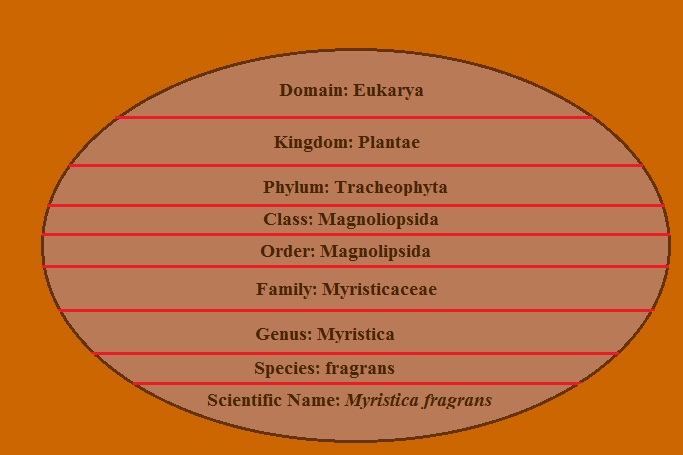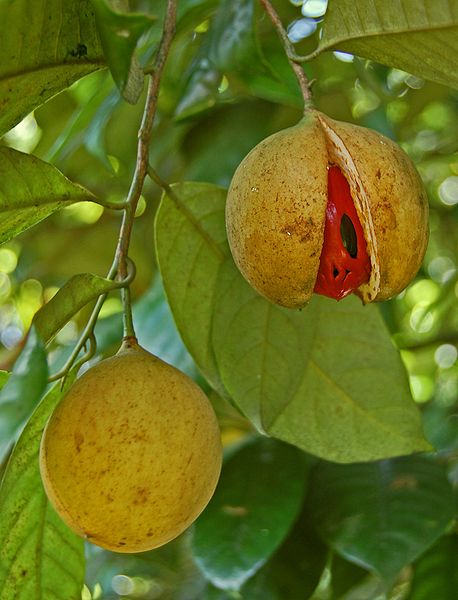Classification

Domain: Eukarya
Nutmeg belongs in the domain Eukarya, "eu" meaning "true" and "karya"
meaning "nucleus." Nutmeg is classified as a Eukaryote because its
cells possess true nuclei and membrane-bound organelles which
distinguishes it from prokaryotes that lack a true
nuclei and membrane-bound organelles. Nearly all eukaryotes are multi-cellular which allows the organisms to posses specialized
cells for specific functions. An example of a specialized cell in
nutmeg is chlorophyll.
This domain also includes other plants such as
Poison Ivy, animals such as the
Passenger Pigeon, and fungi such as the
Cow Patty Mushroom.
Kingdom: Plantae
This kingdom consists of all green plants, including green algae.
The kingdom Plantae falls under the supergroup Archeplastida. Organisms
in this kingdom contain cellulose as the main structural component
of their cell walls, and chloroplast that allow the organisms to
undergo photosynthesis. To learn more about photosynthesis and how
nutmeg generates food, click
here. Other organisms that undergo photosynthesis include the
White Willow and the
Broad-Leafed Peppermint Gum.
Phylum (division): Tracheophyta {"trachia" meaning windpipe,
"phyta" meaning plant}
This division of the Plantae Kingdom involves vascular, or breathing,
plants. As the name suggests, the organisms in this phylum are green
plants that contain vascular systems.
Class: Magnoliopsida
Nutmeg is classified as Magnoliopsida because it is a Dicot
containing two embryonic cotyledons that supply food to the embryo
prior to germination. The leaves of organisms in this class
possess a net-like vein structure. For information regarding these terms, click
here.
Order: Magnoliales
The order Magnoliales means "flowering plants." The order includes six
families including Myristicaceae (several hundred species that
include
nutmeg).
Family: Myristicaceae
The family Myristicaceae is often times referred to as the "nutmeg
family" because it's the family in which nutmeg is classified. This
family also includes several hundred other trees and shrubs
found in tropical areas.
Genus: Myristica
This genus contains organisms that are Asian trees, possessing
white/yellow flowers and fleshy fruits which relate almost specifically to
nutmeg.

Species: fragrans
"fragrans"
Scientific Name: Myristica
fragrans.
The trees above were created by me to show Myristica fragrans
closest relatives based on a cladistic basis.
